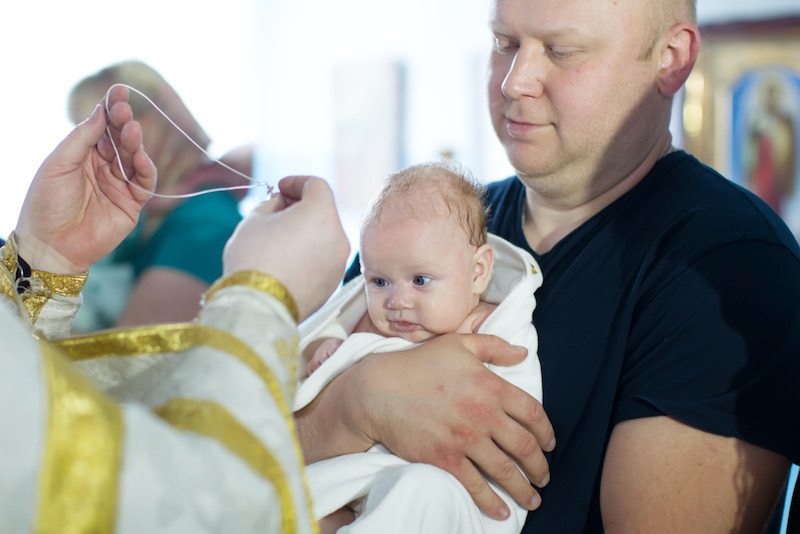Ireland has a longstanding tradition of whitewashing over the mould of child neglect.
Sections 33 and 34 of the 2016 United Nations Concluding observations on the combined third and fourth periodic reports of Ireland are exclusively dedicated to priests’ children and donor-conceived children. Perhaps an unlikely union, however a historicity exists between the two marginalised children’s groups; they share a common ground, isolation, blind-eye treatment and deliberate marginalisation.
In 2014, I wrote to the then-Minister for Children, Frances Fitzgerald, asking her to help convince the Irish Catholic bishops to address the issue of children of priests within the State.
The State’s 2014 response was interesting. “A letter has issued to Archbishop [Diarmuid] Martin as requested,” the Irish Government confirmed. However, Archbishop Martin subsequently remarked: “[I] have no idea whatsoever about any such letter.”
The Government then admitted: “This office does not have any record of this letter issuing to Archbishop Martin.”
Why would the Government pretend to help an organisation dedicated to the rights of a child to know their biological parent?
In February 2015, the chairperson of the Irish Parliament disallowed a question tabled to former Taoiseach, Enda Kenny, regarding a potential meeting between Coping International and the Irish Prime Minister. Additionally, former Minister for Mental Health, Kathleen Lynch’s office emphasised repeatedly: “Minister Lynch cannot offer you any letter of support at this time.”
The National Manager for Children First, Boyd Dodds worryingly stated: “I do not think that the definitions of child abuse and neglect as outlined in Children First Guidelines 2011 provide for the kind of psychological, emotional suffering that children of parents who deny or neglect any parental responsibility may cause.”
I asked Mental Health Minister Mary Butler to respond, in a manner more befitting than her predecessor.
Butler responded: “The birth of children to priests does not necessarily give rise to mental health issues.”
Butler failed to acknowledge the point that some priests’ children suffer because of circumstances they are born into.
It became obvious that children knowing their genetic parents is not an absolute right within the Irish State.
Is there a deeper reason for the Government’s avoidance of the subject of children coming to know their genetic parents?
Senator Ronan Mullen has said: “[The] Government may believe that it would open a Pandora’s box by recognising and resourcing the issue you have raised, and that this could lead to a significant cost burden among other effects.”
Mullen noted that the Government may be “potentially be drawn into addressing the issue in a wider context”.
In 2015, a Bill worked its way to Áras an Uachtaráin, the Children and Family Relationships Bill. This Act relates to the phenomenon of donor-conceived children within the State. Disturbingly, the Act states: “If satisfied that sufficient reasons exist to withhold the information concerned from the donor-conceived child [concerning the identity of their genetic parent, the Minister], shall refuse the request [to disclose said information to the donor-conceived child, aged 18 or over.]”
Where adoptees lose, in terms of knowing where they come from, the future seeks to withhold that same knowledge from donor-conceived children, if “sufficient reasons exist”.
On the 20th of February 2015, the Minister for Children and Youth Affairs proposed to the Government the establishment of a commission to investigate the Mother and Baby Homes.
While the Government initiated an investigation into one of the nation’s darkest periods, the Children and Family Relationships Act paved a new path where children may be left in the dark concerning their genetic roots.
History began to repeat itself all over again; children denied genetic heritage.
April 6, 2015, the bill became law. I petitioned the president at the time. The law still passed.
It remains today despite Micheál Martin’s laudable claim that “access to one's own identity is a basic right” in his State apology following the Mother and Baby Home Report revelations.
Is this “right” contingent upon the nature of one’s conception?
The Irish Special Rapporteur on Child Protection, Professor Conor O’Mahony notes: “[the law] unjustifiably portrays donor-conceived children as a potential threat to their genetic parents.”
Section 35 of the 2015 Act cites “the safety of the relevant donor” as reason to withhold identifiable information from donor-conceived children.
On this point, O’Mahony, notes: “It is questionable whether the provisions allowing for identifying information to be withheld are necessary, especially since other protections exist in the criminal law that would protect the safety of a donor in the highly unlikely event that [their safety] was placed at risk.”
Will not knowing where donor-conceived children come from, genetically speaking, impact their well-being?
Taoiseach Micheál Martin, then Minister for Health, established a Commission on Assisted Human Reproduction in the year 2000.
The Commission confirmed: “There are sufficient similarities” between donor-conceived children, identity confusion, and other psychological disturbances as experienced by adopted children “to cause concern”.
If, constitutionally speaking, “all citizens shall” are “equal before the law”, why weigh the intrinsic rights of donor-conceived children against four words, “[if] sufficient reasons exist”, a point I raised in 2015?
In the wake of the Mother and Baby Home Report, Ireland will face the United Nations having mistreated donor-conceived and priests’ children, unless change comes. They still have time to act, ensuring what is right, ultimately, is done.
The Children’s Rights Alliance notes: “While the UN Committee cannot sanction the State if it fails to uphold the UN Convention on Children’s Rights, it can shine an international spotlight on these important children’s rights issues and hold the Government to account, which can result in real and meaningful action on the ground.”
The State, I feel, has failed to recognise the rights of priest’s children. If they did, they would “potentially be drawn into addressing the issue in a wider context”. Thus, children’s suffering has been overlooked, deliberately, the suffering of both priests’ children and donor-conceived children, so adults might rest easy for another night, as children writhe in historic, state-endorsed psychological agony.
Vincent Doyle is the founder of Coping International.



 Loading ...
Loading ...
What do you think?
You can post as a subscriber user ...
User comments (0)